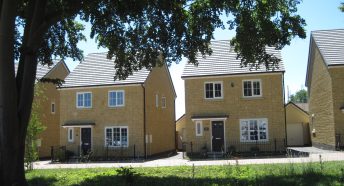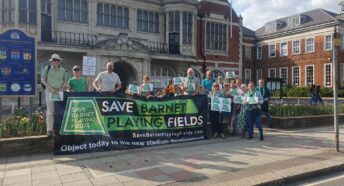Happy Christmas and thank you for all your support!




It’s at this time of year that we tend to assail you with news of what a busy year it’s been for CPRE Kent.
Well, of course it has been a hectic year and there is precious little sign of things slowing down any time soon. We are, as ever, involved in any number of battles and campaigns in the effort to keep Kent a county in which it is fit to live.
However, this is a time of good cheer, so this year we won’t dwell on that. Instead, we’ll just point to a couple of victories from 2019 – one local (although with a far wider context) and the other on a national level – and leave you to enjoy what will hopefully be a lovely, peaceful Christmas and happy New Year.
The Court of Appeal verdict on Pond Farm, Newington, confirmed the refusal of a Gladman Developments scheme for up to 330 homes and an ‘Extra Care’ facility at the site but, arguably more significantly, stressed the importance of air quality in planning decisions. The impact of this success should be felt far and wide.
Nationally, we saw a victory over the ill-begotten bid to fast-track planning in relation to fracking applications through Permitted Development Rights, which had been intended originally for such matters as household conservatories and patios.
So, you see we can turn some things around. We won’t win every battle, but we can win some. And if CPRE Kent and our allies aren’t around to fight them, who will be?
Happy Christmas and thank you all for your support of CPRE Kent!
PS: As a special treat, we’ve included some shots from the CPRE Kent Christmas lunch.
Monday, December 23, 2019
- A number of important documents have yet to emerge. For example, a rigorous transport plan and a finalised air-quality assessment. The latter is critical given that allocations at Teynham will feed extra traffic into AQMAs.
- There seems to be no coherent plan for infrastructure delivery – a key component of the plan given the allocations being proposed near the already crowded Junction 7.
- There seems to have been little or no cooperation with neighbouring boroughs or even parish councils within Swale itself.
The removal of a second consultation might have been understandable if this final version of the plan were similar to that being talked about at the beginning of the consultation process. It is, however, radically different in the following ways:
- There has been a major shift in the balance of housing allocations, away from the west of the borough over to the east, especially around the historic town of Faversham. This is a move that raises many concerns.
- A new large allocation, with accompanying A2 bypass, has appeared around Teynham and Lynsted, to which we are objecting.
- Housing allocations in the AONB around Neames Forstal that were judged “unsuitable” by the council’s own officers have now appeared as part of the housing numbers.
- Most of the housing allocations being proposed are on greenfield sites, many of them on Grade 1 agricultural land – a point to which we are strongly objecting.
Concerns about the rush to submit the plan
The haste with which the plan is being prepared is especially worrying given the concentration of housing in Faversham. If the town is to take a large amount of new housing, it is imperative that the policies concerning the area are carefully worked out to preserve, as far as possible, the unique nature of the town. The rush to submit the plan is likely to prove detrimental.
As Swale does not have a five-year land housing supply, it is open to speculative development proposals, many of which would run counter to the ideas contained in the current plan. Some are already appearing. This is a common situation, and one that, doubtless, is a reason behind Swale’s haste.
Our overriding fear, however, is that this emphasis on haste is ultimately going to prove counterproductive. This is because it is our view that the plan, in its current form, is unlikely to pass independent examination. We are urging Swale to listen to and act upon the comments being made about the plan and to return the plan to the council with appropriate modifications before submitting it to the Secretary of State.
Essentially, this means treating the current consultation not as the final one but as the ‘lost’ second consultation.
The consultation ends on Friday 30 April and we strongly urge residents to make their opinions known if they have not already done so.
Further information








